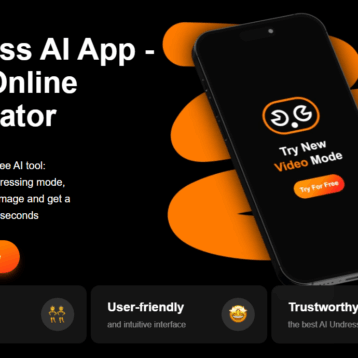Enterprise resource planning (ERP) software has come a long way in the past 50-plus years — to say the least. From its origins in the rudimentary inventory counting software of the ’70s and ’80s to the more powerful but often unwieldy ERP suites of the ’90s and ’00s, ERP software has charted a path of innovation toward the streamlined cloud based enterprise software that so many businesses rely on today.
Like all successful business technologies, ERP suites continue to evolve to better serve the businesses that use them. 2022 is already bringing change to the landscape of process-based manufacturing ERP software, as new and long-term trends alike continue to drive innovation. These four changes are among the most important shifts in the world of ERP that entrepreneurs can expect to see in 2022.
- More businesses will turn to industry-specific ERP solutions.
In the past, businesses often went through an extensive customization process to adapt generic, non-industry-specific ERP systems to their needs. Today, we see the continued popularity of ERP systems designed specifically for use in certain industries, particularly in highly specialized fields such as pharmaceutical manufacturing.
Industry-specific ERP systems have several advantages, including:
- More aligned with the core business processes and value propositions of the companies that use them
- Support from professionals with a deep knowledge of industry best practices
- Often require less customization and allow faster implementation
- More sophisticated and specialized tools for compliance with complex industry-specific regulations
Well-known names like Acumatica and Oracle now offer multiple industry-specific ERP solutions. However, the market also includes niche players such as Global Shop Solutions (for discrete manufacturing such as machine parts) and ProcessPro (for process manufacturing such as food and chemicals). That robust competition and innovation is good news for businesses, who will have a wider-than-ever selection of industry-specific solutions.

- Industry 4.0 technologies like industrial IoT and additive manufacturing will see increasing integration with ERP software solutions.
Manufacturing technology is at an inflection point commonly referred to as Industry 4.0. Driven by the rise of the Industrial Internet of Things, as well as additive manufacturing technologies such as 3D printers, this technological new wave is transforming many industries and will affect many others in the coming years. That’s why ERP vendors are racing to develop new ways to integrate these technologies into their software offerings.
First, ERP software developers must prepare their products for a massive new influx of data from the thousands or even millions of connected sensors that are often present in industrial IoT systems. This will require a new level of processing capability, plus powerful and flexible tools to crunch the numbers and manipulate the data into usable formats for decision making and problem solving.
The rigors of additive manufacturing present another challenging new frontier for ERP software. As increasing numbers of manufacturers add 3D printing capabilities, they’ll need tools for addressing common issues with these powerful but often high-maintenance machines. Allocating raw materials, avoiding production bottlenecks, implementing quality control and reducing equipment downtime are all critical tasks for industrial 3D printing, and ERP systems will increasingly be designed to tackle these.
Many of the top enterprise software choices, such as SAP ERP systems, have already begun adding these features. SAP has even collaborated with UPS to offer an on-demand 3D printing service, offering a glimpse of the kind of agile and collaborative services that may accompany core ERP offerings in the future. Businesses of all kinds, but especially manufacturers and distributors, should look for robust Industry 4.0 features in any software they’re considering — because even if you’re not using additive manufacturing and IIoT yet, there’s a good chance you may be in the future.
- Mobile apps will provide ERP functionality when and where it’s most needed.
With business owners and employees using their smartphones for an ever-increasing variety of key business tasks, and more people than ever working from home, mobile functionality is now a must-have for many ERP customers. In response, ERP software vendors are stepping up the mobile app capabilities of their products and facilitating the seamless integration of mobile devices into centralized data workflows.
What separates the market leaders when it comes to mobile ERP apps? These are a few of the mobile functionalities that you’ll often find in the best ERP systems available today:
- Automatic synchronization with centralized data systems
- Real-time insights and visibility into processes
- Increasing flexibility of both front-end and back-end operations by placing them in a single mobile data ecosystem
- Ability to streamline operations and data security by tailoring app deployment to employee roles
- Access to mobile app development frameworks to create a customized ERP app solution
As we head further into the 2020s, demand for mobile ERP solutions will continue to increase, as will the number of offerings on the market. Businesses that want to get the most from their ERP apps should focus on finding a mobile ERP solution that’s scalable, secure and committed to evolving alongside today’s mobile technology.
- Cloud security will be a make-or-break factor.
Data breaches are among the most feared threats to any business in 2022. With businesses entrusting cloud ERP systems with everything from financial data to HR records, ERP vendors have to address security head-on with proactive and innovative solutions.
These are some of the most critical concerns in cloud ERP security:
- Remote security for employees working from home or in the field
- Role-based permissions and access management to ensure employees have access only to the data they need
- Avoiding common threats such as phishing and malware
- Security of business IoT devices, which can be vulnerable to cybercriminals if not set up correctly
When properly implemented, cloud ERP solutions can actually be more secure than on premises options since they allow the vendor to automatically patch software to fix vulnerabilities. Ultimately, experts say that it’s up to ERP vendors and clients alike to treat data security as a shared responsibility. That means implementing measures like encryption on the vendor’s side and good password hygiene on the client’s side.









